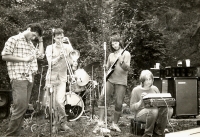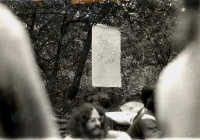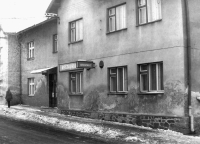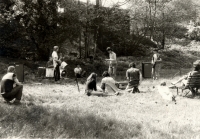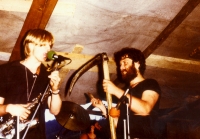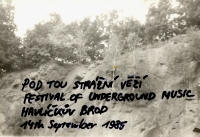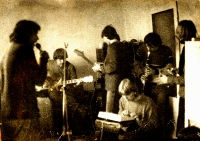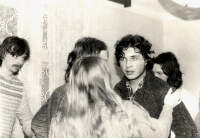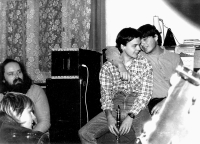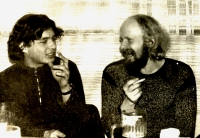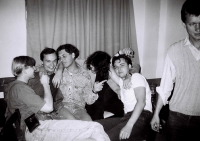With our banging on the line markers, we even outpaced a band from West Germany

Stáhnout obrázek
Jiří Přibyl was born on 8 February 1966 in Havlíčkův Brod. His mother worked at the Pleas national enterprise and his father as an agricultural buyer for a supply company. He first graduated from the Wolkerova Primary School and then went on to the graphic arts high school in Brno. In 1982 he co-founded the band Křečový žíly with other friends from the tenement house, playing an alternative genre with elements of industrial music. Their performances were more like happenings. Together with the youth of Havličkův Brod they organised underground concerts. He worked in the group as a vocalist and dancer until the autumn of 1985, when he joined military service in Sušice. During the war, he was baptized in the evangelical movement in Maniny, Prague. After the counter-intelligence assessed him as an unreliable person because of his way of thinking and activities, he was unable to work in the military printing plant and was transferred to the unit in Janovice nad Úhlavou. After returning to civilian life, Jiří retired to seclusion and there was no resumption of musical activity. Later he moved to Přibyslav, where he became involved in the development of spiritual and cultural life. In 2024 he lived there.




